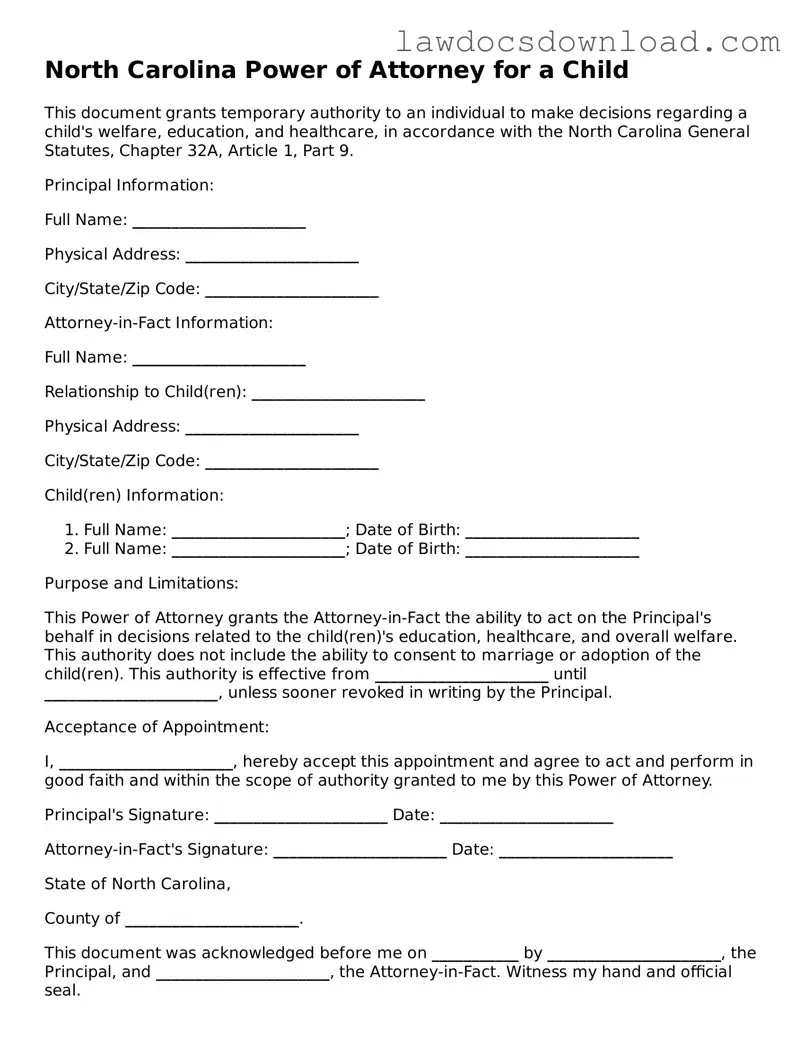Legal North Carolina Power of Attorney for a Child Form
The North Carolina Power of Attorney for a Child form is a legal document that permits a parent or guardian to grant decision-making authority over their child to another person, usually for a specified period. This power includes making important decisions regarding the child's education, health care, and general welfare. It serves as a vital tool for ensuring the child's needs are met when the parent or guardian cannot be present due to various circumstances.
Launch Power of Attorney for a Child Editor Here

Legal North Carolina Power of Attorney for a Child Form
Launch Power of Attorney for a Child Editor Here

Launch Power of Attorney for a Child Editor Here
or
Free Power of Attorney for a Child
Get this form done in minutes
Complete your Power of Attorney for a Child online and download the final PDF.